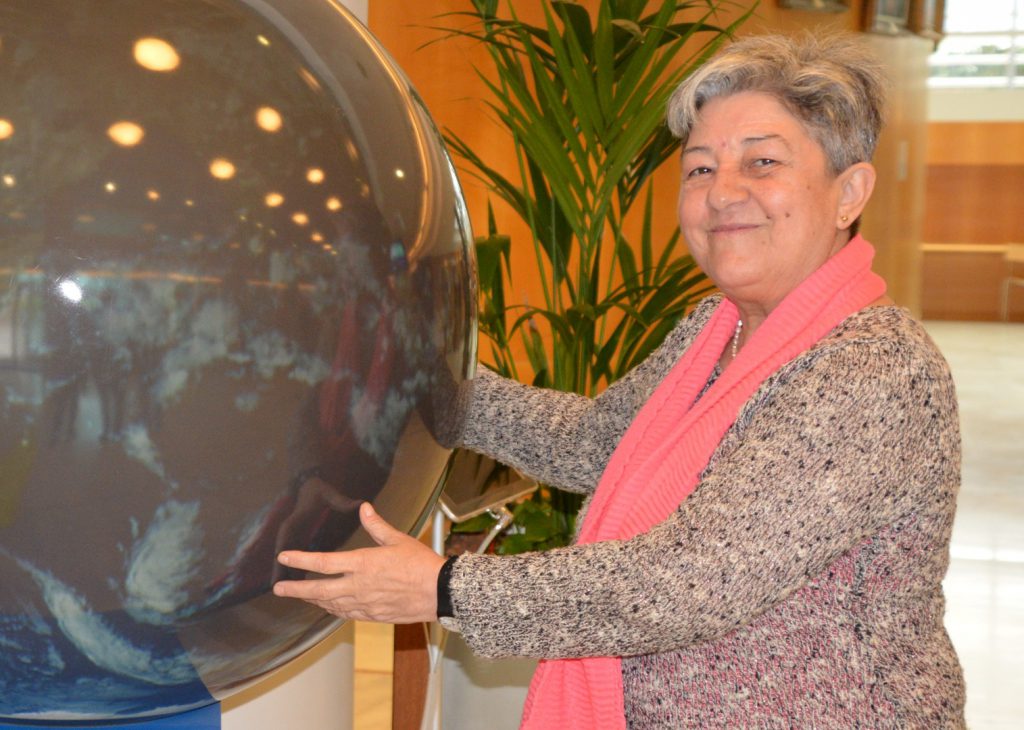Press notes 17/04/2018
Manola Brunet, president of the Commission for Climatology from the World Meteorological Organisation
Manola Brunet is an internationally renowned expert in the field of instrumental reconstruction and weather analysis. She has had a long career collaborating with the World Meteorological Organisation

Manola Brunet is an internationally renowned expert in the field of instrumental reconstruction and weather analysis. She has had a long career collaborating with the World Meteorological Organisation
Manola Brunet, head of the URV’s Climate Change Centre C3, was elected president of the World Meteorological Organisation’s (WMO) Commission of Climatology (CCI) during its 17th session held from 10-13 April in Geneva, Switzerland. During the session, Barbara Tàpia of Chile was also elected vice-president. It is the first time in the Commission’s almost 90-year history that both positions are held by women. Both the AEMET (Spanish Meteorological Agency) and the Ibero-American Meteorological Services have voiced support for their candidacy.
Brunet teaches Climatology in the Department of Geography of the Universitat Rovira i Vigili (URV), she is head of the Climate Change Centre of the URV and a visiting professor in the Climatic Research Unit at the University of East Anglia (Norwich, UK). She is an internationally renowned expert in the field of instrumental reconstruction and climate analysis. Furthermore, Brunet has a long career collaborating with the WMO, has taken part in the activities of the Commission for Climatology since 2001 and has been co-president of the team designed for climate monitoring and analysis since 2005, where she presides currently.
The World Meteorological Organisation is a specialised agency of the United Nations which focuses on the weather, climate and water. It is organised into eight Technical Commissions, each with a different focus. The Commission for Climatology manages world activities to obtain knowledge and information on the climate in order to promote sustainable, socioeconomic development and environmental protection. Focusing on this goal, among others, the CCI coordinates the network of the Organisation’s regional climate centres which provide seasonal forecasts and it is responsible for the annual, five and ten-year terms of the WMO. These forecasts give information about the state of the global climate and regularly emits reports related to tracking abnormalities in atmospheric and oceanic rotation, such as El Niño/La Niña and South Oscillation phenomenon. Additionally, it oversees the WMO’s extreme weather and climate archive and promotes the preservation and collection of historic weather and climate data as well as data exchange.
Therefore, in the years to come, the CCI and their new president will be essential to understanding, detecting, and foreseeing global climate change. The mission of the National Meteorological Services focuses on the design and implementation of the national climate services, in which it will need to play an active role: participating and receiving guidance from the Commission to improve opportunities and increase social benefits.
